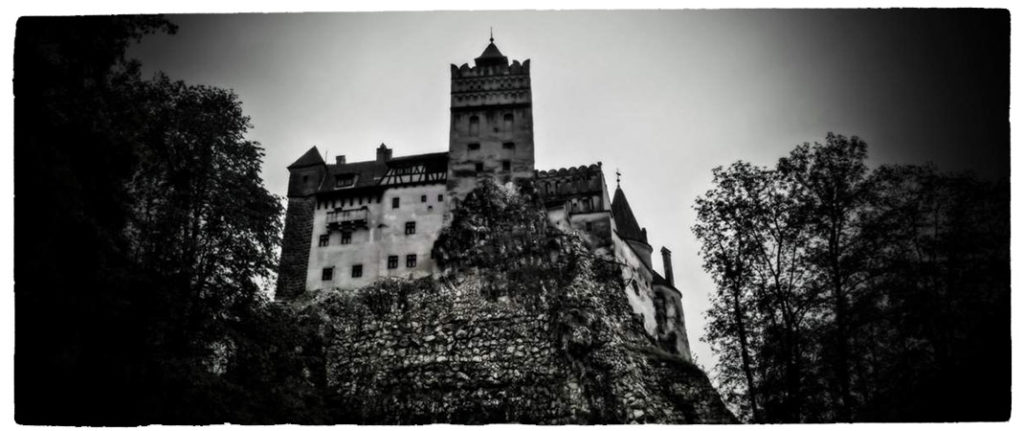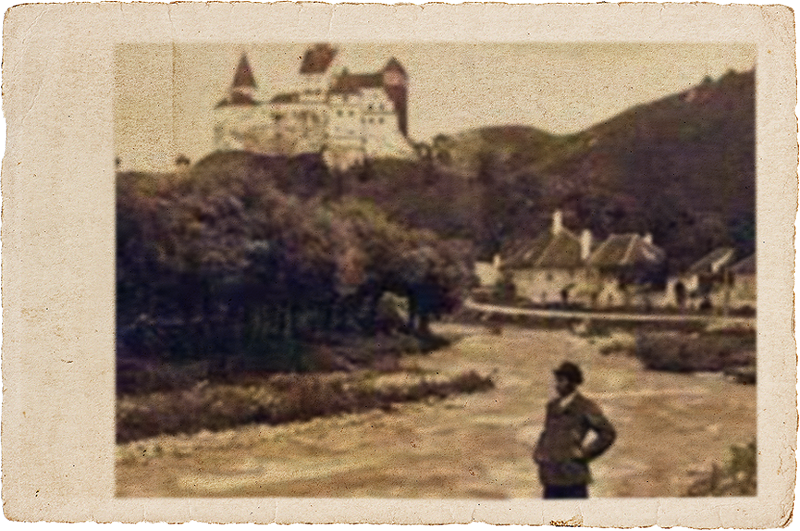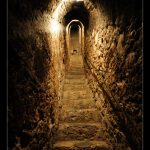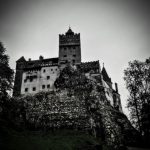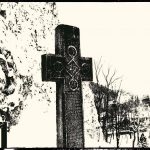In the Castle of Prince Drăculea
1878
At the incredibly young age of only 23 years old, a fresh-faced Abraham Vambery joined the Adventure Club of Europe. He had impressed the other members of the Adventure Club of Europe (ACE) with his linguistic prowess speaking, already at his young age: Mandarin, Afrikaans, Farsi, Dari, Tädschiki, and 13 other – long since dead – East Frisian dialects. Through a secret donation, the ACE supported the publication of his German-Breton dictionary in 1868.
![]()
Ten years later he reported on how he travelled, dressed as a dervish, through Armenia and Persia, and how he got to Central Asia using a false name. These expeditions, amongst others, have been published in his travelogues My Hiking Tours and Experiences in Persia and 100 Constipation-Safe Meals in Central Asia, which can be found in any secular library.
Of his many expeditions there is only one on which Abraham Vambery did not publish a report. This took the shape of an adventure in 1878 where he would take a map and a ticket for a one-month trip all the way to Transylvania in Romania. Vambery called a halt to this now infamous trip after only two weeks and has remained silent ever since about his experiences. At a meeting of the Adventure Club of Europe in London in 1890, Vambery alluded to his trip vaguely in a lecture he was giving on ‘Learning from failed expeditions’.
In ACE’s 1890 yearbook, we find the following entry on his expedition:
Vambery recounted in discursive …
… words and with wit and humour his arrival in Siebenbürgen. His desperate search for an inn, in which he played – convincingly and life-like – the encounters with other people, made tears of laughter come into the listeners‘ eyes. A local woman gave him, for example, a rosary for protection. Instead of an inn, he ended up in the house of the Romanian Prince Drăculea. Vambery portrayed his impression of the place so impressively that the club members’ laughter suddenly turned into a deathly hush. He spoke of rooms he was not allowed to enter, and a moment of horror, when he thought he saw Prince Drăculea climbing the wall like a lizard.
Vambery, whom we know as intrepid and courageous from many expeditions, who is not afraid of disguise, false identity and political crises, felt a panic fear of death in the castle that culminated to the point that he believed he had to die the same evening. For days – and here Vambery’s report began to falter – he must have tried in vain to leave the castle before he managed to escape after a tough week. Out of curiosity and interest, the comrades of the Adventure Club of Europe tried to find further details through Vambery, regarding the encounter with the mysterious Prince and his residence, but white as a sheet and silent as this one suddenly became, this seemed impossible.”
On that evening, Bram Stoker, who later became a world-famous author, sat in the London audience. Until late in the night he would have been asked for further information about Vambery’s journey before Vambery finally gave him an insight into his diary from that time. According to unconfirmed rumors, Stoker’s most important novel, Dracula, is based on Vambery’s diaries.
![]() [/vc_column_text][/vc_column][/vc_row]
[/vc_column_text][/vc_column][/vc_row]
![]()
Ten years later he reported on how he travelled, dressed as a dervish, through Armenia and Persia, and how he got to Central Asia using a false name. These expeditions, amongst others, have been published in his travelogues My Hiking Tours and Experiences in Persia and 100 Constipation-Safe Meals in Central Asia, which can be found in any secular library.
Of his many expeditions there is only one on which Abraham Vambery did not publish a report. This took the shape of an adventure in 1878 where he would take a map and a ticket for a one-month trip all the way to Transylvania in Romania. Vambery called a halt to this now infamous trip after only two weeks and has remained silent ever since about his experiences. At a meeting of the Adventure Club of Europe in London in 1890, Vambery alluded to his trip vaguely in a lecture he was giving on ‘Learning from failed expeditions’.
In ACE’s 1890 yearbook, we find the following entry on his expedition:
Vambery recounted in discursive …
… words and with wit and humour his arrival in Siebenbürgen. His desperate search for an inn, in which he played – convincingly and life-like – the encounters with other people, made tears of laughter come into the listeners‘ eyes. A local woman gave him, for example, a rosary for protection. Instead of an inn, he ended up in the house of the Romanian Prince Drăculea. Vambery portrayed his impression of the place so impressively that the club members’ laughter suddenly turned into a deathly hush. He spoke of rooms he was not allowed to enter, and a moment of horror, when he thought he saw Prince Drăculea climbing the wall like a lizard.
Vambery, whom we know as intrepid and courageous from many expeditions, who is not afraid of disguise, false identity and political crises, felt a panic fear of death in the castle that culminated to the point that he believed he had to die the same evening. For days – and here Vambery’s report began to falter – he must have tried in vain to leave the castle before he managed to escape after a tough week. Out of curiosity and interest, the comrades of the Adventure Club of Europe tried to find further details through Vambery, regarding the encounter with the mysterious Prince and his residence, but white as a sheet and silent as this one suddenly became, this seemed impossible.”
On that evening, Bram Stoker, who later became a world-famous author, sat in the London audience. Until late in the night he would have been asked for further information about Vambery’s journey before Vambery finally gave him an insight into his diary from that time. According to unconfirmed rumors, Stoker’s most important novel, Dracula, is based on Vambery’s diaries.
![]()

